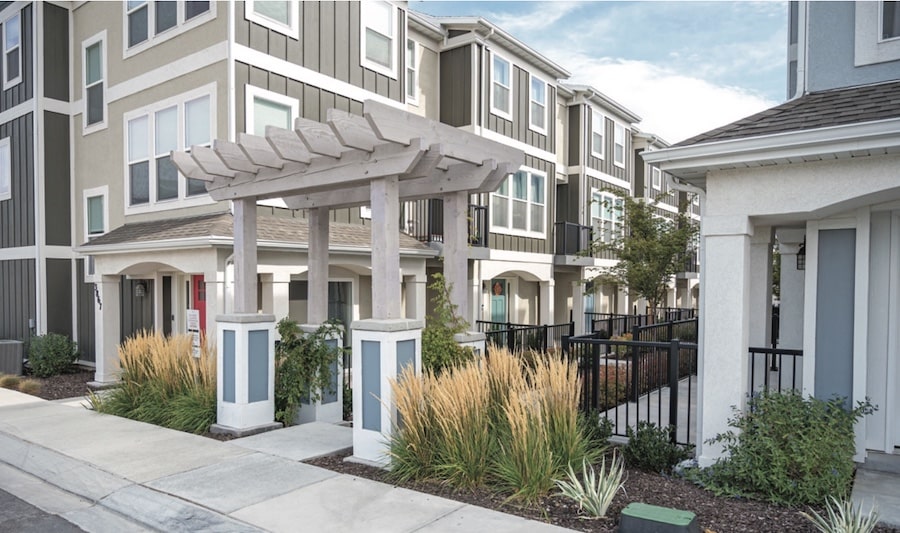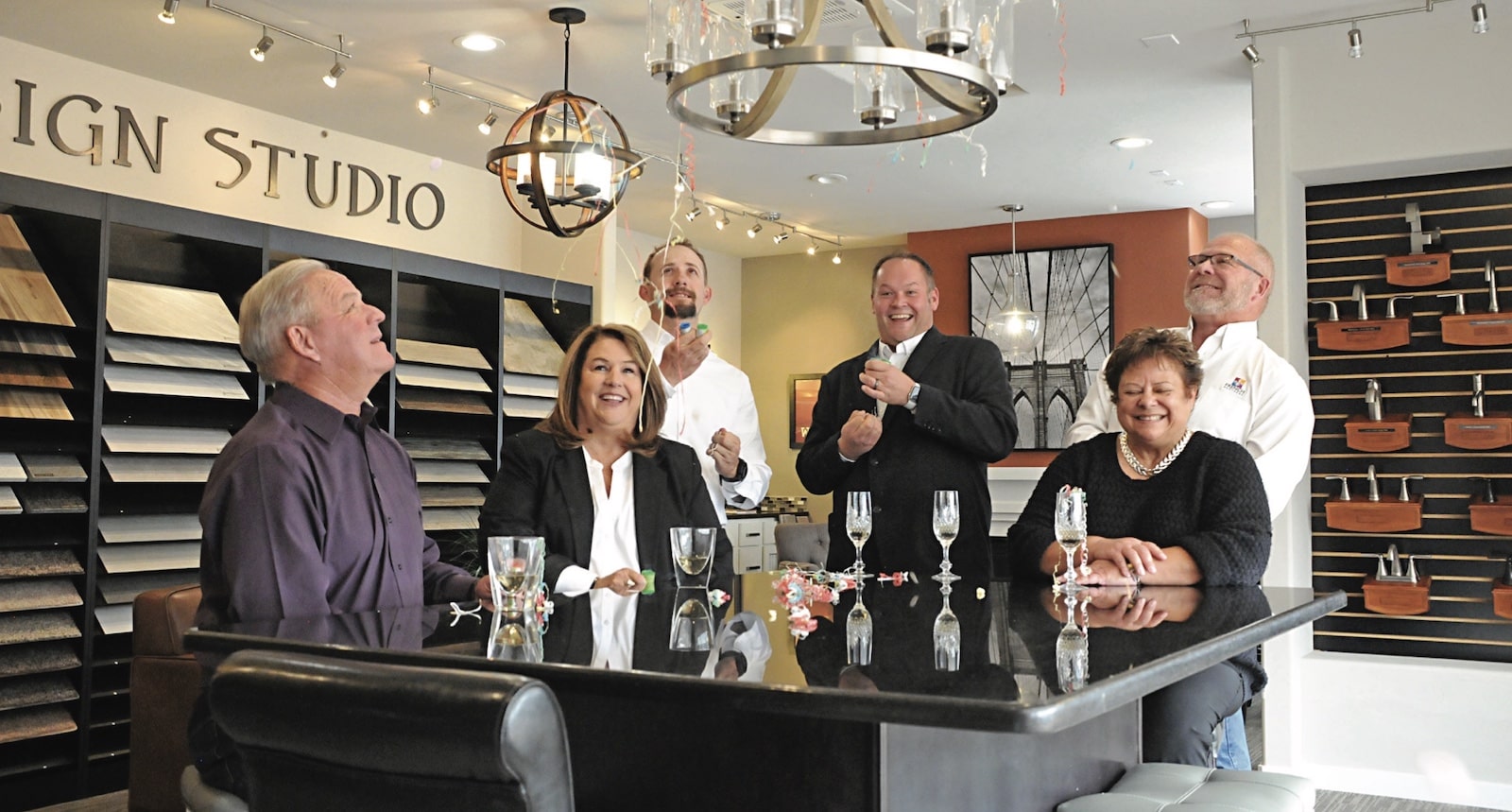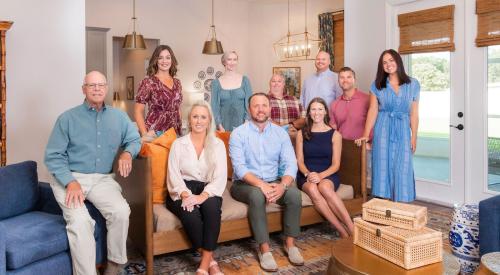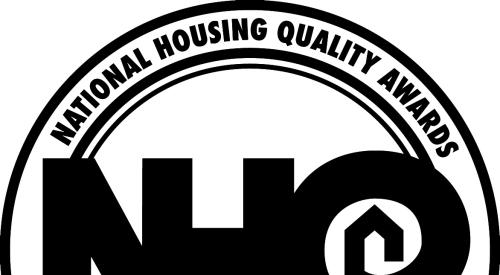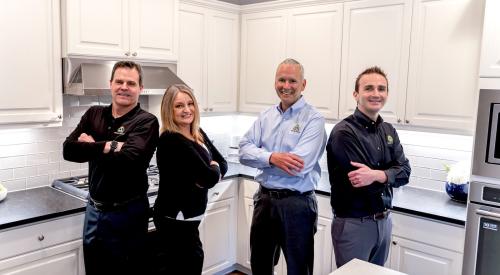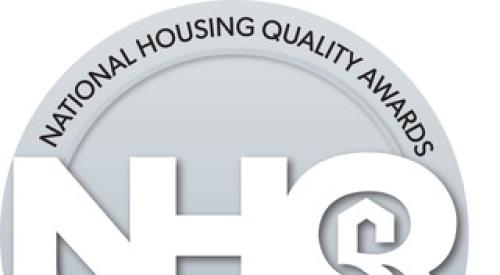The National Housing Quality Award (NHQA) is an exercise in self-examination that possibly has just as much—or more—value for participating home builders as actually earning the industry’s most renowned award for operational excellence.
Before applying for the 2022 NHQA, Barry Gittleman, president and CEO of Bronze recipient Hamlet Homes, in Murray, Utah, sought advice from builders that had been through the process. He was warned that anyone entering solely to win a plaque for their company’s trophy case didn’t have their heart (or head) in the right place.
 “They told me we were going to identify some problem areas and that we’d get defensive about them and try to hide them from the judges,” he says. “But if you’re going into this for the right reasons, to make your team, your people, and your company better, then maybe you’ll get recognized for that effort.”
“They told me we were going to identify some problem areas and that we’d get defensive about them and try to hide them from the judges,” he says. “But if you’re going into this for the right reasons, to make your team, your people, and your company better, then maybe you’ll get recognized for that effort.”
What Is the National Housing Quality Award and How Is It Judged?
The NHQA program tailors the Malcolm Baldrige National Quality Award and ISO 9000 concepts for quality management systems to the home building industry. The goal for builders and the examination team is to seek out and qualify to what extent systems and processes for continuous improvement exist in eight areas of a builder’s operation: Leadership, Strategic Planning, Performance Management, Customer Satisfaction, Human Resources, Construction Quality, Trade Relationships, and Business Results.
The 167-point application is daunting and—as Gittleman alluded—reveals some warts. But as one of the few true peer-to-peer benchmarking processes for the housing industry, NHQA provides builders with tools and insight to remedy those flaws and then measure their progress and the impact on their business.
The NHQA examination team consists of home builders that have earned NHQ Gold awards, along with industry-specific quality management experts such as Scott Sedam from training and consulting firm TrueNorth Development and Glenn Cottrell from housing innovation consulting firm IBACOS. The team reviews and scores applications, from which finalists are selected for on-site evaluations. A trio of judges then visits and grades the builders to validate operational performance metrics expressed in the application. The site visit grades are combined with the written application scores to determine whether an applicant should be recognized for Gold, Silver, Bronze, or Honorable Mention status ... or none at all. Regardless, all applicants receive an extensive feedback report detailing current strengths and opportunities for improvement.
RELATED
- Past National Housing Quality Award winners
- Want Continuous Improvement? NHQA Hall of Famer Bill Saint Says Look in the Mirror
- 7 Steps to Quality Homes (It's All About Process)
A Fresh Pair of Eyes on Your Business: How the NHQA Process Benefits Home Builders
Past applicants liken the NHQA experience to holding up a mirror and taking a good, hard look at your company. “It’s difficult to see the big picture if you’re in the picture. That’s where the judges come in; they offer an outside perspective,” says Tom French, a co-owner of French Brothers, in Alamagordo, N.M., now a two-time NHQ Silver award recipient (the previous one in 2015). “The judges are so experienced, so knowledgeable, and there is no doubt in your mind that they’re there to help you. They’re an honest counsel.”
Perhaps home builders could identify areas for improvement on their own, but Nick Hackworthy, CEO and president of 2022 NHQ Silver award recipient Creative Homes, in Woodbury, Minn., says that would not have happened with the level of detail or at the speed that the NHQA journey provided. “They’re seeing things that we might miss because they’re right in front of us as part of our everyday,” he says. “Obviously, those judges have been around the block and are very experienced, talented people. All of the feedback coming from highly accredited people brings a lot of value to your team.”
2022 NHQA Winners
Silver Award: French Brothers
Silver Award: Creative Homes
Bronze Award: Hamlet Homes
Silver Award: French Brothers
Alamagordo, N.M.
Founded: 1994
Markets: Alamagordo, Artesia, Hobbs, Las Cruces, N.M.
2020 revenue: $33 million
2020 closings: 105
Company Strengths
- French Brothers communicates progress against its strategic plan to everyone in the company.
- The company maintains a well-defined sales process that includes training and performance evaluations.
- Leaders promote a culture that clearly defines customer-centric processes and responses.
The French Brothers team tells a good story about how, since receiving Bronze and Silver NHQ Awards in 2014 and 2015, respectively, the processes the company put in place actually prepared it for remote working during the COVID-19 pandemic. They also told the NHQA examination team during its visit last August that the company was poised to close more than 300 homes in 2022; it closed 105 in 2020.
“They all kind of wiggled in their chairs, flipped through their pages, and said we were going to have a different conversation,” says Tom French, co-owner and CEO. “They came to look and judge a 100-unit company and when they heard we were on pace for 300, they had a different set of questions.”
Upon further review, the three judges, with more than a half century of industry experience among them, pointed out that the company didn’t have the right leadership structure to grow by more than 200 closings in 18 months. Construction quality control needed to be upgraded and the builder would need to use preventative rather than reactive approaches for fixing mistakes. Now that French Brothers had expanded, it also needed processes to ensure consistency in practices across its four markets.
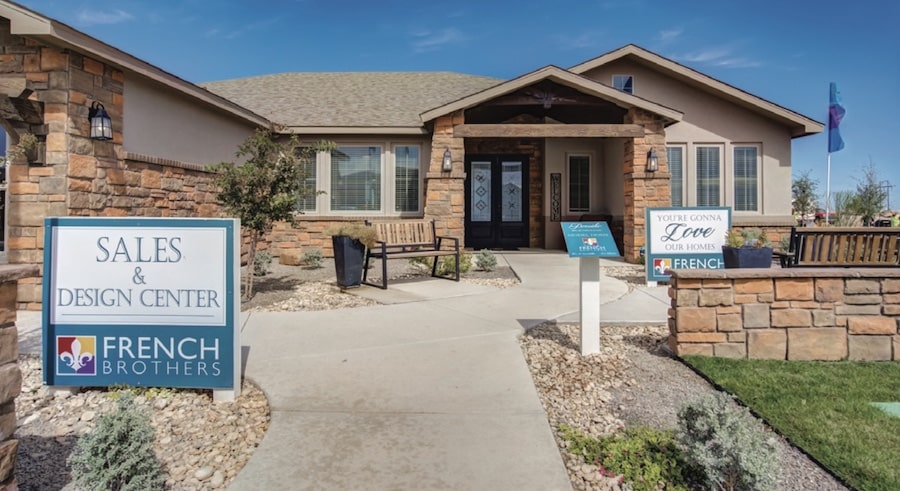
“The beauty of it was these guys helped us understand and pointed out the chinks in our armor and holes in our game plan,” French says. “What got us here wasn’t going to get us there.”
Currently, the company is working on restructuring its operations so its teams in the four markets where French Brothers operates can prosper with more decentralized control. It’s also improving its information systems so, instead of having staff pull reports, information will quickly be available in real time to anybody in the company who needs it.
Between earning Silver in 2015 and expanding into two new markets simultaneously—Hobbs and Artesia, N.M.—the company transitioned its leadership style from strong individuals to strong teams. Seventy-five percent of the company’s lead builders couldn’t make that transition and departed.
By its third NHQA application in 2021, French Brothers had improved more than 120 processes across its operation, a journey that gave the company the confidence to expand and compete in new territories, even as the pandemic took hold and the supply chain faltered.
“When COVID-19 came along, we were fairly well prepared,” French says. “We just needed to be creative and expand the use of the technology we’d been using for sales to our builders and trade contractors. We were doing framing walks via Zoom with our customers.”

Silver Award: Creative Homes
Woodbury, Minn.
Founded: 2012
Markets: Minneapolis /St. Paul, western Wisconsin
2020 Revenue: $105.7 million
2020 Closings: 220
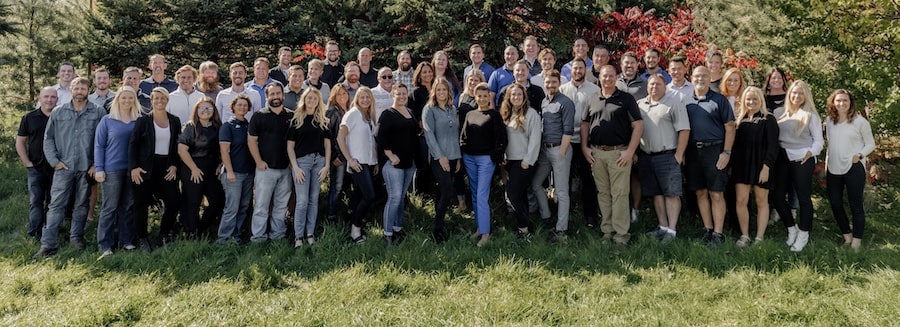
Company Strengths
- Employees are aware of individual contributions to the company’s success.
- Use of an Entrepreneurial Operating System (EOS) provides data-driven decision-making from sales through pre-construction.
- All departments are aligned with operating procedures documented in Creative Homes’ core process playbook.
Merely completing the NHQA application was an aspiration for Nick Hackworthy since he started Creative Homes in 2012. In fact, a blank application had been hanging on a wall in the “war room” of Creative’s office in Woodbury, Minn., since 2015. Last year, Hackworthy’s team decided to go for it, despite already being burdened by the pandemic and supply chain issues. A cross-discipline team took on the arduous application, and Hackworthy also leaned on past NHQA recipients from his Builder 20 group for mentorship.
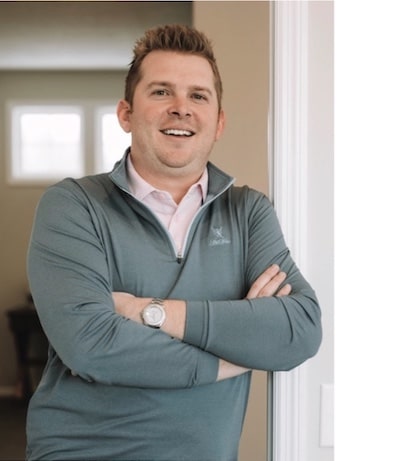
Photo: 8710 Photography
“This was one of the most challenging years home building has ever seen, and we looked at this application process multiple times and asked ourselves whether we should put it on the shelf and just pick it up another year,” says Hackworthy, CEO and founder. “I give kudos to my entire team because they really pushed to do it.”
The team encountered what most NHQA applicants discover before receiving feedback from the judges, that is, they identified opportunities for improvement along the way. But the Creative team also experienced another benefit: “The team we established to do this was getting more exposure to other parts of the business that they didn’t previously have as much exposure to,” Hackworthy says. “We don’t have a siloed organization, but when our designers were building the application, they were getting to see more of what was going into the construction section and the trade partner section. It created a lot more awareness.”
CEO and founder Nick Hackworthy is a second-generation builder and has had applying for an NHQ Award on his radar since starting Creative Homes in 2012.
COVID-19 can beat down customer satisfaction, but Creative Homes hit a company high by mid-year with 92.5% of clients willing to refer 60 days after closing, as tracked by research and management consulting company Woodland, O’Brien & Scott. The NHQA feedback report noted that the company abundantly communicates with its clients, and Hackworthy credits that culture to the Power Hour, in which the neighborhood builder and a salesperson call customers—usually on the same day—with status updates and to ease any anxiety throughout the building phase.
The judges recommended that similar communication could be expanded to key suppliers and trade partners. The builder has a system in place to inspect trade partner performance, but not one to track or identify trends that could be used to develop improvement plans. Also, the examination team found the trade base was unaware of how their work affects customer satisfaction and warranty data.
“We want to continue to elevate being the builder of choice for our trade partners,” Hackworthy says. “One of the judges’ comments that resonated most with me was, ‘What you’ve created inside your four walls, go create with your trades in the field.’”
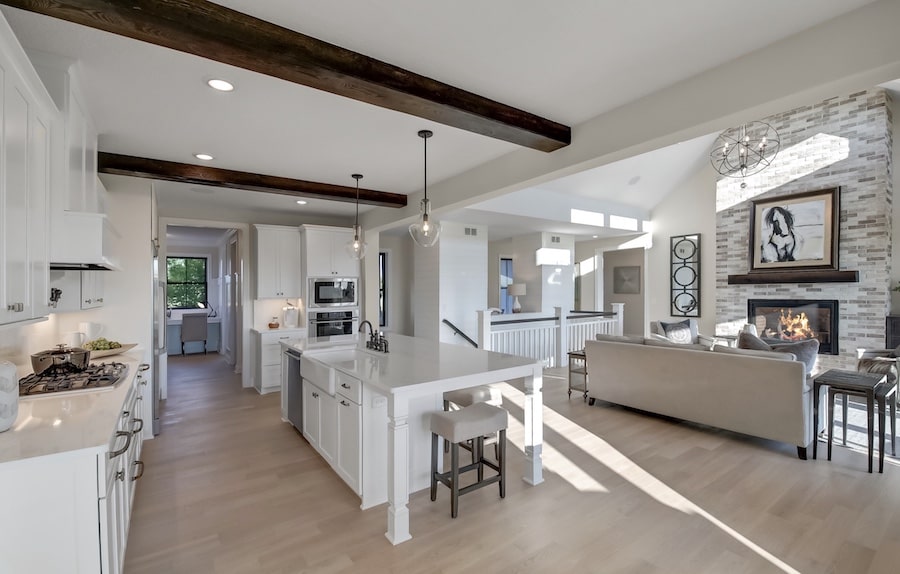
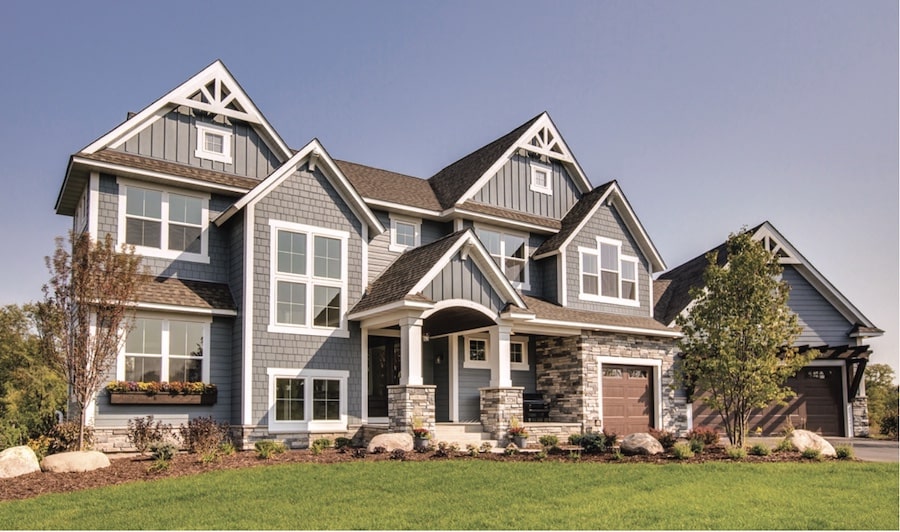
Bronze Award: Hamlet Homes
Murray, Utah
Founded: 1995
Markets: Salt Lake City metro area
2020 Revenue: $68.6 million
2020 Closings: 154
Company Strengths
- Monday morning and one-on-one meetings effectively engage employees.
- Formal weekly contact with buyers is an industry best practice and a key element of Hamlet Homes’ companywide focus on the customer.
- Hamlet delivers a high-quality, finished product with very few punch list items at closing.
Barry Gittleman was a U.S. Navy submarine officer before becoming a home builder. His 24 years as an engineer, weapons, and operations officer involved procedures and checklists for every deployment.
“The nuclear power and nuclear submarine program is all about checklists. There’s a procedure for everything, and [NHQA] kind of reminded me of that,” says Gittleman, president and CEO of Hamlet Homes, in Murray, Utah. “With nuclear power plants, there’s a great deal of science and not much art. Home building definitely has more art to it, but the processes were similar in that we’re trying to compare ourselves with the best in the industry and looking for how we can make ourselves better.”
NHQA validated what Gittleman already knew were some of the company’s strengths, such as its culture of “customer obsession” and employee focus. At its site visit, the examination team also noted that Hamlet has industry-leading customer satisfaction results, specifically a willingness-to-refer metric of 96% at the end of 2020, as measured by consultants Woodland, O’Brien & Scott, up from 86% in 2017.

In fact, the entire company meets quarterly to brainstorm ways to enhance customer experience, an opportunity that starts at contract signing when each customer receives their “pathway map” and a homebuyer manual that lays out the building process. A sales representative and superintendent update buyers on project status and answer any questions during weekly phone calls, and the marketing team sends notifications via email and letters at high-impact moments, from contract signing and pre-construction to warranty reminders and the buyer’s one-year anniversary.
“We want to make sure we’re highlighting those high moments throughout the process and then having constant communication, so there are no surprises,” says Tami Ostmark, VP of marketing. “If there’s a delay—and during the past couple of years there have been lots of delays due to COVID-19 and supply chain issues—we’re still keeping buyers excited about this homebuying process.”
A customer-focused culture requires engaged employees, and NHQA judges lauded Hamlet Homes for treating each of its 47 employees as a “whole person.” Monthly meetings between employee and manager are not just about job duties; managers also help associates create long-term personal development goals and set them up with courses and training. Hamlet offers each employee up to $5,000 in annual tuition and personal development reimbursements of 100% if the program in some way relates to the job and 25% if it has no relation to an employee’s work duties.
“I think everyone appreciates having that time set aside,” Gittleman says. “They can commit to each other, so it’s like, ‘Hey, I’m going to work on this. Here’s what I’m going to do. And here’s the deadline I’m going to set for myself.’ That has really helped everyone recognize that the company cares about them as individuals.”
